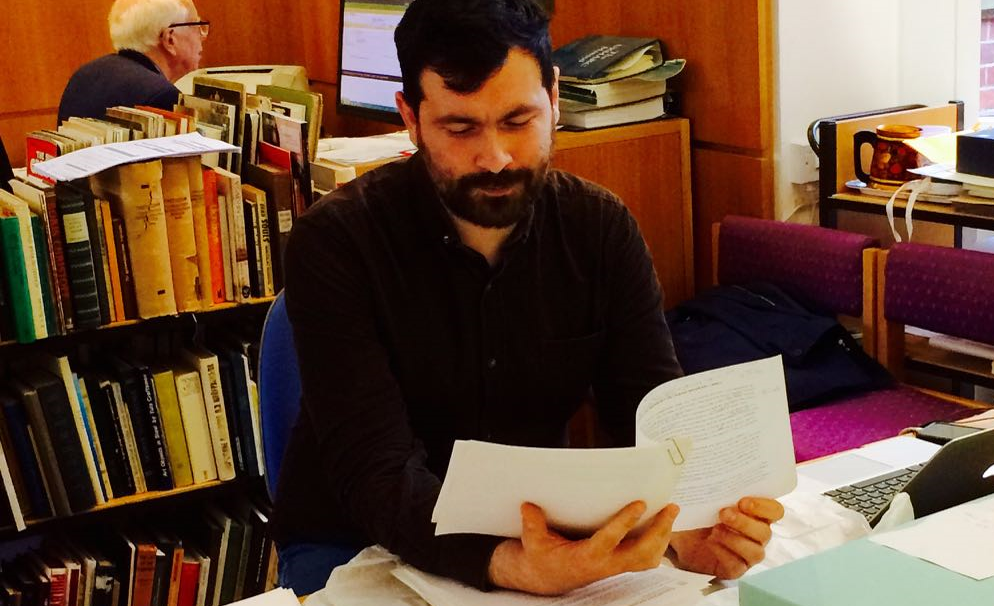The Disabling Society is Inhuman
Written by Dr Tom Campbell

We are delighted to introduce the new CDS Leeds Blog. In this first post Dr Tom Campbell, CDS Member and Deputy Director of the Bauman Institute at the University of Leeds, offers a tantalizing insight into hitherto (largely) unknown thinking of Zygmunt Bauman on disability. Tom is currently undertaking work on the Bauman Archive; the important collection of Bauman’s papers held at the Special Collections, University of Leeds. The Centre for Disability Studies has a long-standing specialism in the theorisation of disability. Tom and other colleagues continue this work today.
Zygmunt Bauman wrote on many things, or perhaps most accurately Zygmunt Bauman wrote on most things that would or could be appropriate topics to flow from a sociologist’s pen. We should not therefore be surprised that amongst the thousands, perhaps tens of thousands of pages that constitute his oeuvre that Bauman shares his thinking on disability. Given Bauman’s long commitment to social justice it is not a huge surprise that his thinking on disability positions disabled people as an oppressed group - disability as a public issue not a private trouble. His writing (and personal correspondence) show us that he was attentive to the difference between impairment and disability and that he was sensitive to the relationship between old age and disability. The ideology of normality and hospitability of the built environment were signalled as a major concern by Bauman. Disabling barriers, he indicated, should not exist in a caring society. His short article Society Enables and Disables (2007), in the Scandinavian Journal of Disability Research and his book On Education: Conversations with Riccardo Mazzeo (2012) may not cite the social model of disability, but it is evident that his analysis is animated by a similar spirit to much of the social-model-inspired writing that came from the Centre for Disability Studies and School of Sociology and Social Policy where he was, of course, once Professor and then Emeritus Professor.
The influence of Disability Studies on Bauman’s thinking on disability has become clearer to me as I read through his research and personal papers - now held at the Special Collections at the University of Leeds from where I write this blog (it is hoped that the Bauman Archive will open to the public from 2019). We have access to a box file of research material Bauman kept on disability – these include material which I believe are extracts from the Disability Studies Distance Learning MA program that launched at Leeds in the 1990s.
Bill Hughes wrote in 2007 that Bauman’s work has ‘no explicit connection to Disability Studies’. But whilst the disabling character of society was not a theme that Bauman returned to regularly, it is evident to me that for Bauman disablement (in both solid and liquid modernity) was one of the many symptoms of ‘adiaphorization’. Adiaphorization describes for Bauman the social process of becoming moral indifferent. The different ways in which adiaphorization operates in its solid and liquid modern forms are for me an interesting and perhaps vital way to theorise the varied forms of oppression that disabled people have faced and continue to face. The few pages that Bauman wrote on disability leave us with the beginning of an innovative way of theorising disability when read in relation to his broader work. I will explore this in a future article.
I will close this blog with Bauman vision of the disabling society’s ‘other’: the enabling society.
What I learned from my teachers, and have remembered ever since, was that compassion and care stood at the cradle of human society; that the surest way to recognize human society is by its ‘enabling’ work - enabling to survive those who otherwise would not manage to stay alive on their own. It was that enabling skill and labour that made society and all its members (those cared-for as much as those who cared for them), human. To be truly and fully human and secure in one’s humanity one needs to be cared for by other human beings and to be confident that care will be provided when needed; but to be human one needs also to be moral, one needs to care for other human beings and be ready to hurry to provide help when it is needed. It is ultimately on the relationship of caring and being cared for that human society is built and the humanity of its members is sustained.
(Bauman 2007: 58)
The disabling society is therefore inhuman.
Reference:
Bauman, Z. (2007) ‘Society Enables and Disables’, Scandinavian Journal of Disability Research, 9 (1), pp. 58–60. DOI: http://doi.org/10.1080/15017410500530068
Author
Dr Tom Campbell
Associate Professor in Social Theory
